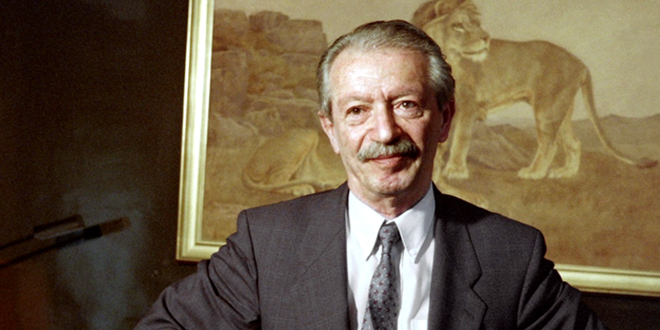
We begin tonight’s edition of A Window to the Fatherland with Dr. Alireza Nourizadeh reading his new poem as eulogy for the tragic death of Homa, the young daughter of the imprisoned Iranian human rights lawyer Abdulfattah Soltani.
Dr. Alireza Nourizadeh:
We continue the program with reading through a statement by the women’s rights activist Jila Bani-Yaghoub about the death of Homa Soltani.
She says:
“I am sitting in one corner of Abdulfattah Soltani’s home to mourn the sudden and tragic death of his daughter Homa. He calls me over. I wonder what he wants to tell me. I sit next to him and he says: this morning when I was leaving Evin prison to attend Homa’s funeral, I cam across the families of those arrested in the recent protest demonstrations in Tehran. There were 50 or 60 of them. Please do support their cases and ask other human rights lawyers to take uptheir defence. These young people have no way of defending themselves”.
“I am amazed by his strength and ask him how could he, only hours after hearing the news of the passing of his young daughter, think about the plight of the political prisoners in Iran. But in reply he reads a poem from Ferdowsi that says ‘there is no time for mourning our dead if the living people are denied of their lives’.
We continue the program with a short report on the anniversary of the murder of Dr. Shapoor Bakhtiar.
I had the privilege of attending the ceremony at the grave of Bakhtiar yesterday and it was an occasion to meet some of my dear friends whom I had not seen for many years.
Together, at the grave of the late Dr. Bakhtiar we condemned his murder at the hands of the Iranian regime’s henchmen and announced to the world that this regime will have the same fate as that of the Gaddafi’s and Saddam’s.
As of tonight the first round of the new US sanctions against Iran will become effective.
The sanctions that will come back into effect after midnight target transactions with U.S. dollar banknotes; trade in gold and precious metals; direct or indirect sales of graphite and metals such as steel and aluminium; certain transactions related to the Iranian rial; certain transactions related to issuing Iranian sovereign debt; and Iran’s automotive sector.
Additionally, authorizations will be revoked for the import of Iranian-origin carpets and foodstuff and the export of commercial aircraft.
The second wind-down period, which ends Nov. 4, will be the more significant one, as that is when sanctions on oil sales snap back. The senior administrationofficial said that would have an “exponential effect” on Iran.
At the end of the program we will review Mohammad Khatami’s 15 points recommendation to reform the regime, where he has concluded that the current system of governance in Iran has lost itstouch with the people and a reformist movement should urgently begin makingfundamental changes to the way Iran’s economic and political systems function.
 khalijefars News, Blogs, Art and Community
khalijefars News, Blogs, Art and Community








